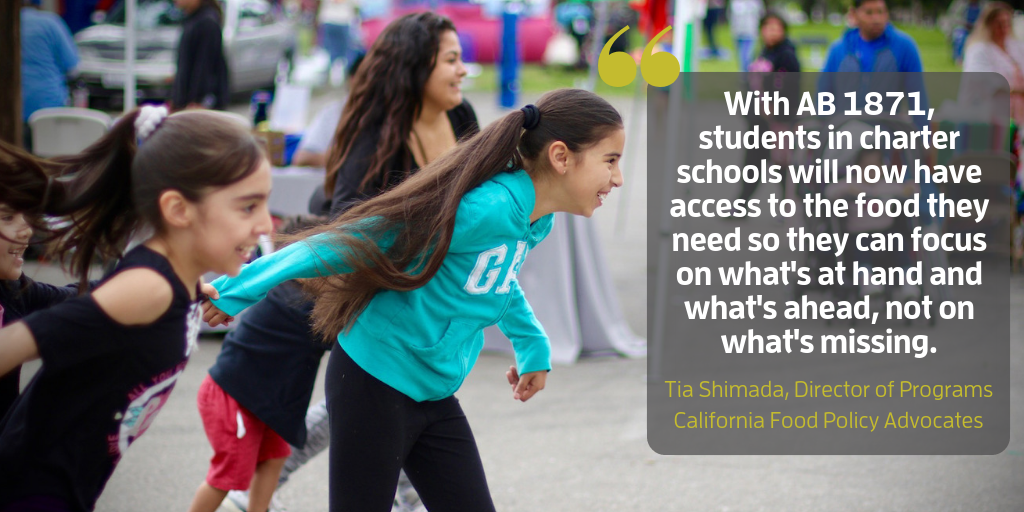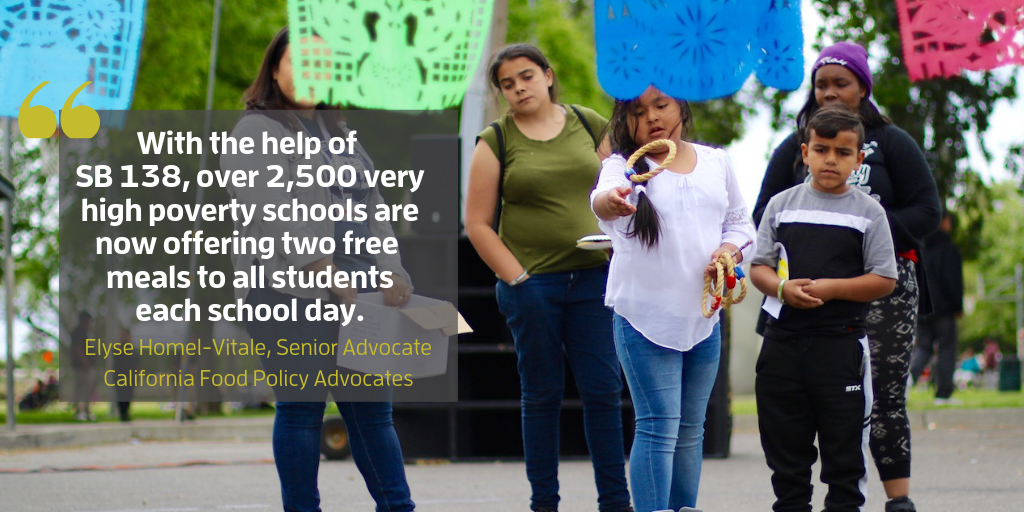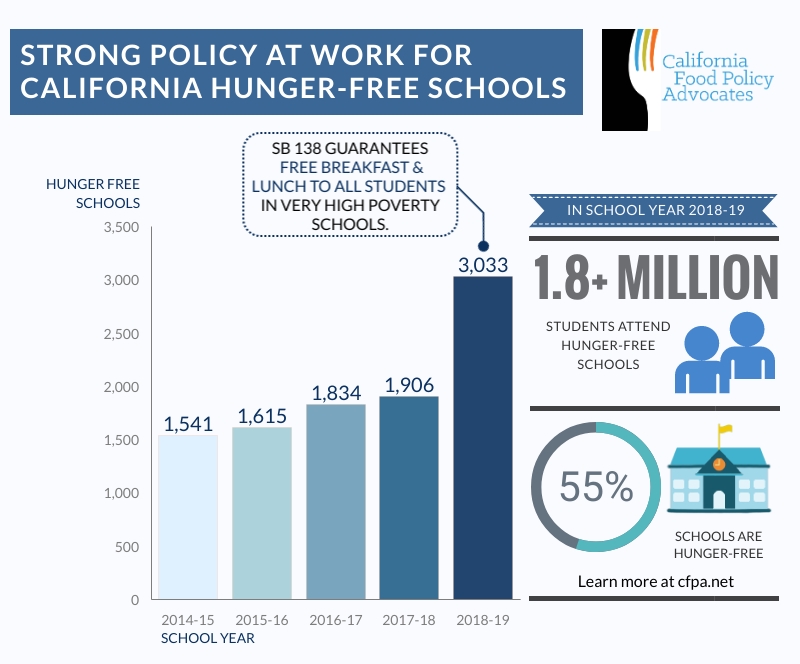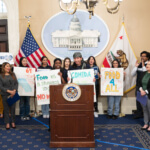Summer is over and as the new school year begins, California is implementing new laws that bring us closer towards making school meals an educational resource available to all students. This year, as children return to school, more than 340,000 students will take their seats in charter schools where they should finally have guaranteed access to at least one free or low-cost meal each day. In addition, more than 1.8 million children will return to traditional public schools where all students can eat for free.
Last year, Jasmine, a young student and a powerful advocate, testified in front of the California Senate Education Committee to share her experience of attending a charter school that did not offer any free or reduced-price meals. Speaking in support of AB 1871 (Bonta, 2017), Jasmine recalled having to sit through some lunch periods without food. The bill, co-sponsored by California Food Policy Advocates (CFPA), the CA State PTA, the CA Teachers Association, and the Western Center on Law & Poverty, goes into effect this school year. That means no eligible charter school student should ever have to get through the school day without a nutritious meal. AB 1871 isn’t the only new law bringing more meals to California students this fall.
Thanks to the passage of SB 138 (McGuire, 2018) more schools than ever before are serving two free meals each day to California’s students. SB 138, sponsored by CFPA, removed the hassles of school meal applications by paperlessly enrolling income-eligible students participating in Medi-Cal directly into free and reduced-price meals and by calling upon very high poverty schools to offer breakfast and lunch free to all students—known as universally free school meals. Thanks to the passage of SB 138, in the 2018-2019 school year more than 1,000 school sites moved to take advantage of federal flexibilities that enable them to serve free meals to all students without the need to collect individual school meal applications, bringing the total number of school sites providing universal school meals to about 3,000. Now over half of all California’s public schools are hunger free! These changes come at an important time.
As California takes these two important steps forward, the Trump Administration is trying to take two very large steps back. Last month, the administration finalized its public charge rule–making the use of SNAP/CalFresh, and certain health and housing benefits, grounds for a green card denial. Although school meals and WIC are not included in the rule, its finalization—along with the overall rise of anti-immigrant rhetoric and policies—have created a climate of fear for immigrant communities. CFPA stands in solidarity with advocates across the state, dedicated to mitigating the harmful effects of this rule. We hope litigation will stop the changes from taking effect on October 15th, but will continue advocating policies that help immigrant Californians access the food they need to thrive.
“All students deserve equitable access to education and food,” says George Manalo-LeClair, Executive Director of the CFPA. “And despite fear, confusion, and other actions, school meals continue to be available to low-income students regardless of immigration status. This recent expansion of hunger-free schools and improved paperless enrollment can certainly help eligible, fearful students from missing out on the meals that help them succeed in school.”
The Trump Administration also proposed a new, misguided rule for SNAP/CalFresh that would sever the seamless connection to free school meals for tens of thousands of California students and cut off many families from critical nutrition support. If enacted, USDA estimates that over 500,000 young students would be cut off from the free school meals that help them stay prepared and focused at school to achieve their academic goals. The cuts would also mean thousands of schools that serve, or are planning to serve, universally-free meals under the Community Eligibility Provision could lose eligibility for the program or make it financially unsustainable to continue to operate the program. CFPA is committed to dismantling these and other challenges that keep Californians from accessing the resources they need to live healthy, happy, productive lives. We know we can’t do it alone.
Together, Californians have advanced important policies that provide our students with more equitable access to nutritious, affordable food. Let’s come together again and fight against the Trump Administration’s divisive, harmful policies.
- Click here for actions you can take to prevent harm from the public charge rule. link
- Click here for actions you can take to oppose the SNAP/CalFresh proposed rule. link
Questions? Contact Melissa Cannon at 510.433.1122 ext 102, or visit https://nourishca.org/ab842/







